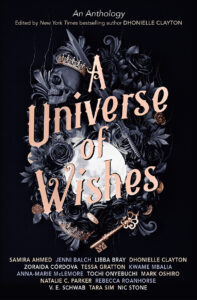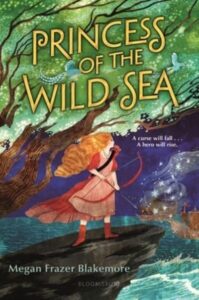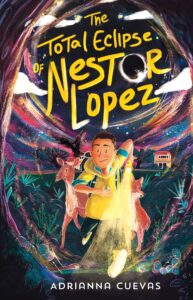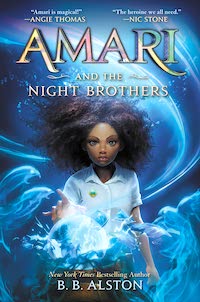Explore Nontraditional Fantasy Novels with Kids
By Kasey Short

Many newer fantasy novels flip tropes upside down and reimagine what it means to be a hero. These nontraditional fantasy books can be used address difficult topics, provide real world commentary, counter stereotypes, allow students to see kids that look like them as heroes, and inspire new ways of thinking and imagining.
There are many possibilities for using these novels in a middle school classroom to engage readers while intentionally addressing other important topics. Here are two from my classroom:
- Exploring how the reimagined characters challenge gender stereotypes can lead to discussions about gender roles and societal expectations.
- Analyzing the real-world issues addressed in a fantasy setting can also lead to conversations about current events and global issues.
Also, nontraditional fantasy books can offer representation to students who may not see themselves in traditional fantasy stories. Students who are often underrepresented in literature can imagine themselves as heroes who have the power to shape their own future. This can be especially important for students who may feel marginalized and/or excluded.
Suggested Activities and Discussion Topics
1. Stereotypes: How does the novel challenge stereotypes? What lesson could you learn from this example and how could that be applied to real world situations? Before reading, make a list of stereotypes often found in fantasy novels. While reading, make a note of examples that counter stereotypes.
2. Real-World Connections: What challenges and events in the book relate to situations in our world today or in history? Once these connections are made, compare and contrast how characters in the book reacted to/solved these issues to how similar issues are dealt with in the real world. What could we learn from the characters about tackling different issues?
• Oppression and Power: Explore how the novel addresses these and how it relates to real world power dynamics. Who is in power, how did they achieve their power, and do they use their power to oppress others? Compare how a villain in the novel uses their power to examples of real-world authoritarian leaders.
• Environmental Issues: Many fantasy novels address issues such as deforestation, pollution, or the impact of climate change on fictional worlds. Students could examine how the novel addresses these issues and discuss how they relate to similar issues in the real world as well as how the hero of the story “solves” the problem in relation to possible real-world solutions.
• Immigration and Migration: Some fantasy novels explore the experiences of characters who must leave their homes and migrate to new places. Students could discuss how this relates to real-world experiences of immigrants and refugees and examine the reasons why people might be forced to leave their home, how they are treated on their journey, and how they are received once they arrive at their destination.
• Discrimination and Prejudice: Students can examine how a fantasy novel addresses issues of discrimination and prejudice, and how this relates to real-world examples of racism, sexism, or other forms of discrimination.
3. Representation in Literature: Discuss the importance of representation in literature and how nontraditional fantasy books can offer representation to underrepresented groups. How did the inclusion of these underrepresented groups impact the story?
4. Creative writing: Students use the novel as a model for creating their own fantasy short story that features unlikely heroes, counters stereotypes, and includes connections to real world challenges.
5. Tropes: Examine traditional fantasy tropes and compare them to the novel. Discuss the impact of flipping these tropes on the plot, characters, and themes. What about the novel would not have been possible with traditional tropes?
Nontraditional Fantasy Novel Suggestions
Here’s a beginning collection of titles that appeal to my students and might help you expand your class or school library collection of “flipped” fantasy. There are many more out there to discover!
✦ Universe of Wishes edited by Danielle Clayton
This collection of young adult fantasy short stories features diverse characters and nontraditional fantasy plots. Each story can be read as a stand-alone and could introduce students to authors whose work they’d like to explore further. These short stories would also be wonderful mentor texts to start a fantasy unit for upper middle grades.
✦ Princess of the Wild Sea by Megan Blakemore
This book tells the story of Princess Harbor Rose anxiously awaiting her thirteenth birthday and what will come of the curse she was told was given to her as a baby. She believes a prince will be sent to save her and her community from this curse, but ultimately realizes she is the hero of her own story.
✦ Lia Park and the Missing Jewel by Jenna Yoon
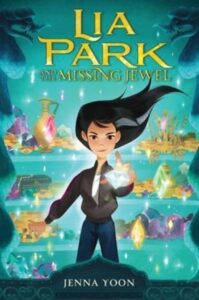
✦ Eden’s Everdark by Karen Strong
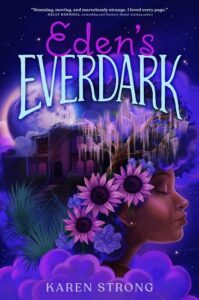
✦ The Total Eclipse of Nestor Lopez by Adrianna Cuevas
Nestor Lopez can talk to animals, and he moves around a lot due to his father being in the military. He just wants to fit in after moving to a new town to live with his grandmother. He soon finds himself needing to solve the mystery of animals who are disappearing and especially prove that his grandmother isn’t involved in the disappearances. He realizes they are being impacted by a witch and needs to use his powers to stop her.
More Books to Choose From
✦ The Girl from the Sea by Molly Knox Ostertag
✦ City of the Plague God by Sarwat Chadda
✦ The Hidden Witch by Molly Knox Ostertag
✦ Pet by Akwaeke Emezi
✦ Amari and the Night Brothers by B.B. Alston
✦ Where the Mountain Meets the Moon by Grace Lin
✦ The Ghosts of Rancho Espanto by Adrianna Cuevas
✦ Nic Blake and the Remarkables: The Manifestor Prophecy by Angie Thomas
✦ Mari and the Curse of El Cocodrilo by Adrianna Cuevas
✦ Unstuck by Barbara Dee
✦ Team Chu and the Epic Hero Quest by Julie Dao
Kasey Short (@shortisweet3) is the Middle School Director of Studies and an 8th Grade English Teacher and Advisor at Charlotte (NC) Country Day School. Kasey loves to share ideas from her classroom and writes frequently for MiddleWeb. She attended the University of North Carolina at Chapel Hill and earned a bachelor of arts in middle school education with a concentration in English and history. She went on to earn a master’s in curriculum and instruction from Winthrop University.

